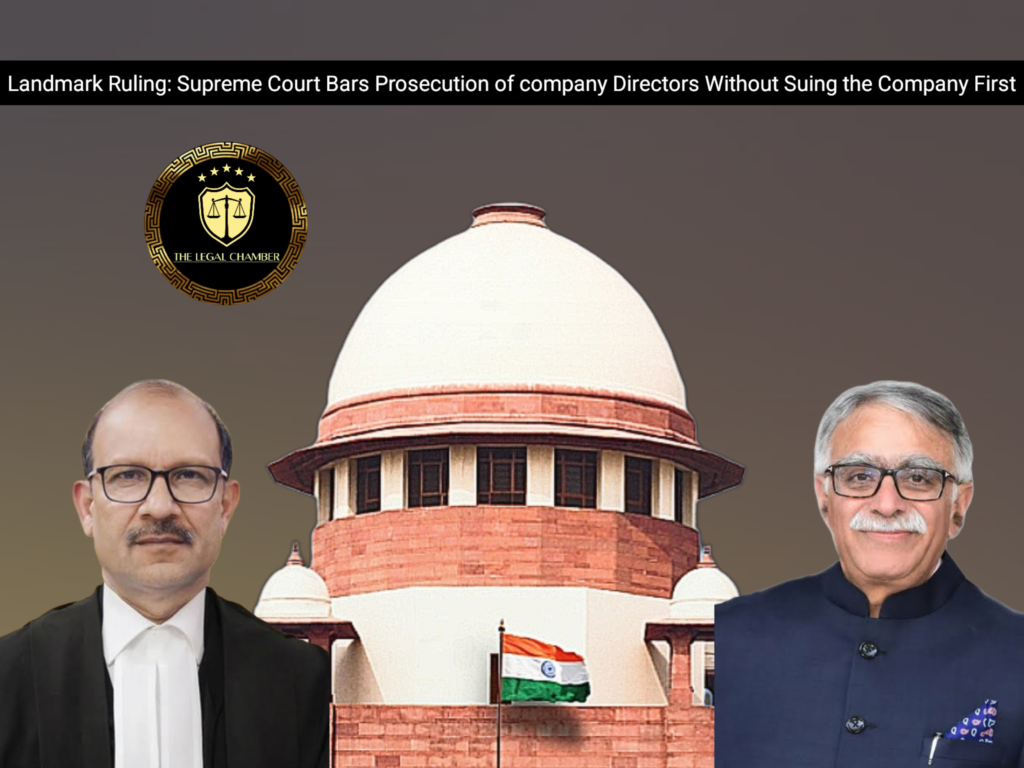
The Supreme Court quashed the criminal defamation proceedings against the bank officials. It held that for offences under the Indian Penal Code, there is no concept of vicarious liability. Prosecuting officers without arraigning the company as an accused and without specific allegations of their culpable role is impermissible and an abuse of process.
Facts Of The Case:
The case originated from a loan default by Phoenix India, which had secured credit facilities from the Bank of Baroda. After the firm’s account was classified as a non-performing asset, the Bank initiated recovery under the SARFAESI Act. A critical error occurred when the Bank issued a symbolic possession notice under Section 13(4) of the Act, which inadvertently quoted the outstanding dues as approximately Rs. 56.15 crores instead of the correct amount of about Rs. 5.61 crores. Phoenix India, without seeking clarification from the Bank, sent a legal notice to the Bank’s Chairman, Managing Director, and other senior officers, accusing them of defamation for maliciously publishing a false and exaggerated demand. Despite the Bank promptly issuing a clarificatory letter expressing regret for the clerical mistake, the firm filed a criminal complaint before a Magistrate, who issued process against the bank officials for offences under Sections 500 and 501 of the IPC. The High Court subsequently dismissed the officials’ petitions to quash the complaint, leading them to appeal to the Supreme Court.
Procedural History:
ALSO READ:Supreme Court Landmark Ruling: Proprietor and His Business Are Not Separate Legal Entities
Court Observation:
The Supreme Court made several critical observations while quashing the criminal proceedings. It firmly held that prosecuting the bank officials without impleading the Bank itself as an accused was impermissible, as there can be no vicarious liability for directors or officers of a company for offences under the Indian Penal Code without the company being arraigned first. The Court emphasized that the IPC contains no provision for attaching automatic vicarious liability, unlike special statutes, and mere bald assertions against officials based on their designation are insufficient to issue process. It further noted that the act of issuing the possession notice was a bona fide exercise of statutory power under the SARFAESI Act, and the clerical error was promptly rectified, lacking any mala fide intent to defame. The Court concluded that continuing the prosecution amounted to a gross abuse of the judicial process.
Final Decision & Judgement:
The Supreme Court allowed the appeals and quashed the criminal proceedings in their entirety. It set aside the impugned order of the High Court and the Magistrate’s order issuing process against the bank officials. The Court held that the prosecution was unsustainable both because the Bank, a juristic person, was not arraigned as an accused and due to the absence of any specific statutory provision for vicarious liability under the Indian Penal Code. It ruled that the actions of the officials were protected under Section 32 of the SARFAESI Act as they were done in good faith while discharging statutory duties, and the proceedings amounted to an abuse of the process of law.
Case Details:
Case Title: Anil Khandelwal Etc. vs. Phoenix India and Anr. CITATION: 2025 INSC 1069 CRIMINAL APPEAL No(s).: 1159-1160 of 2011 Date of Judgement: August 28, 2025 Judges/Justice Name: Justice Sandeep Mehta and Justice Sanjay Karol
Download The Judgement Here